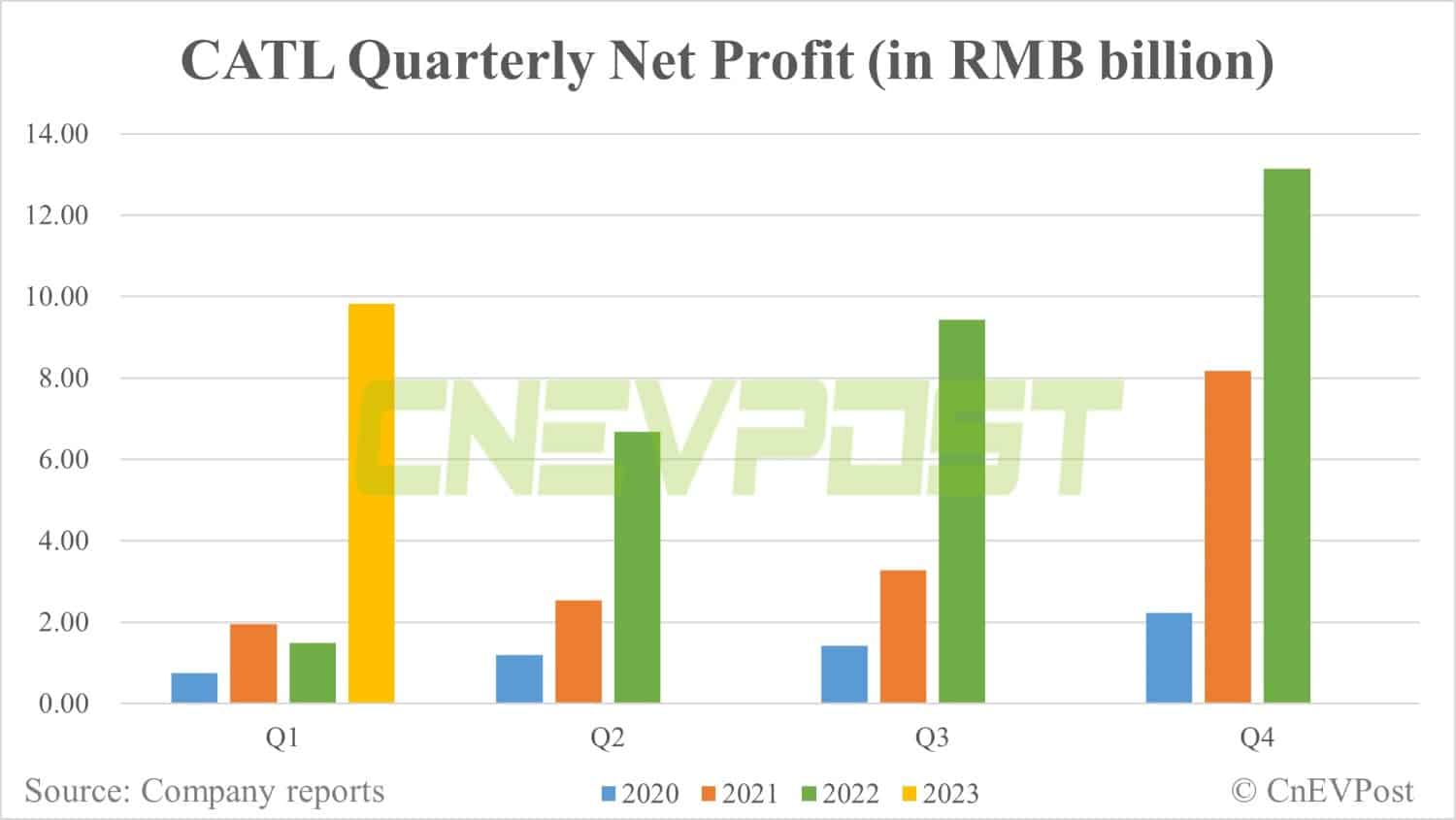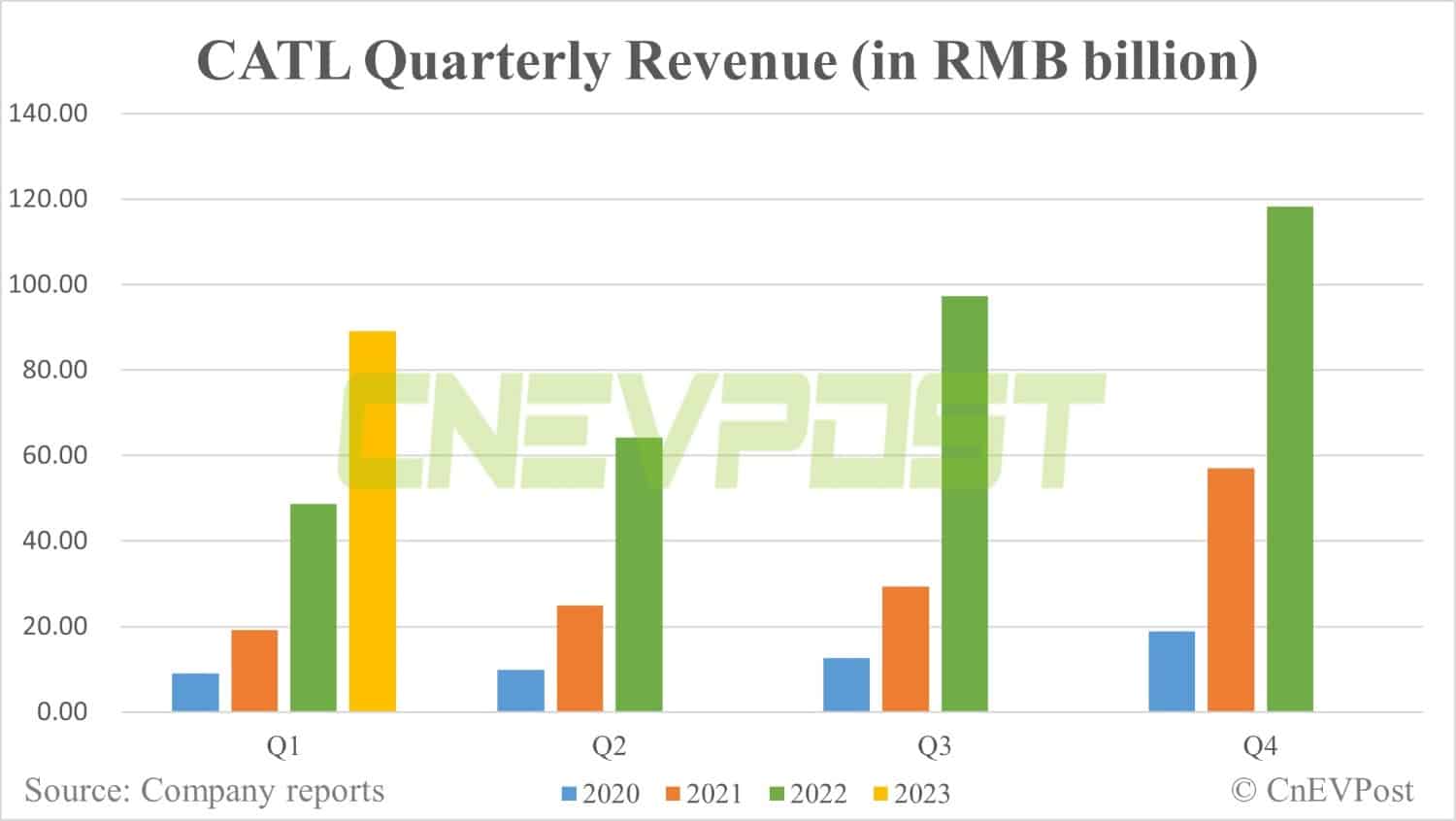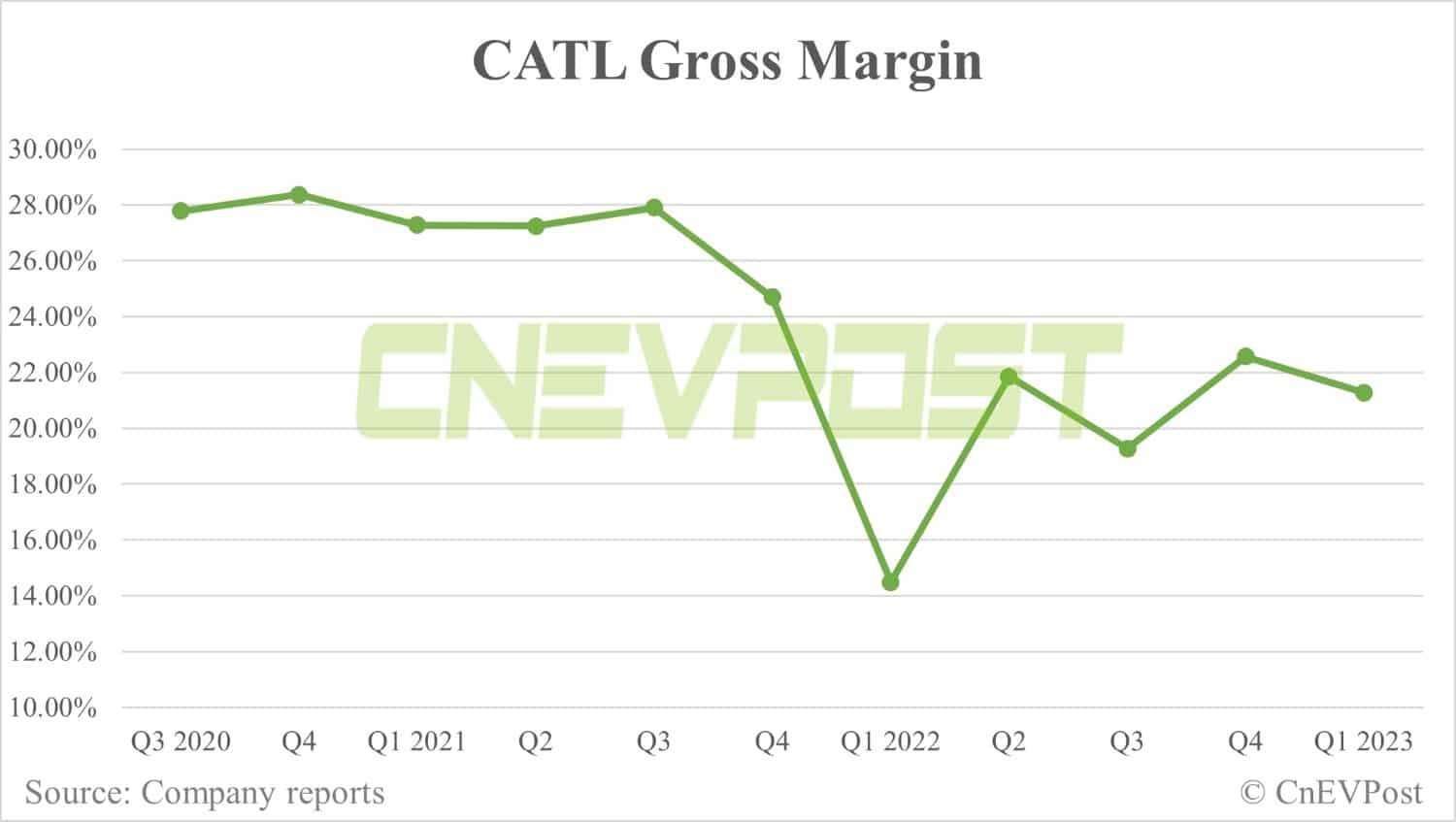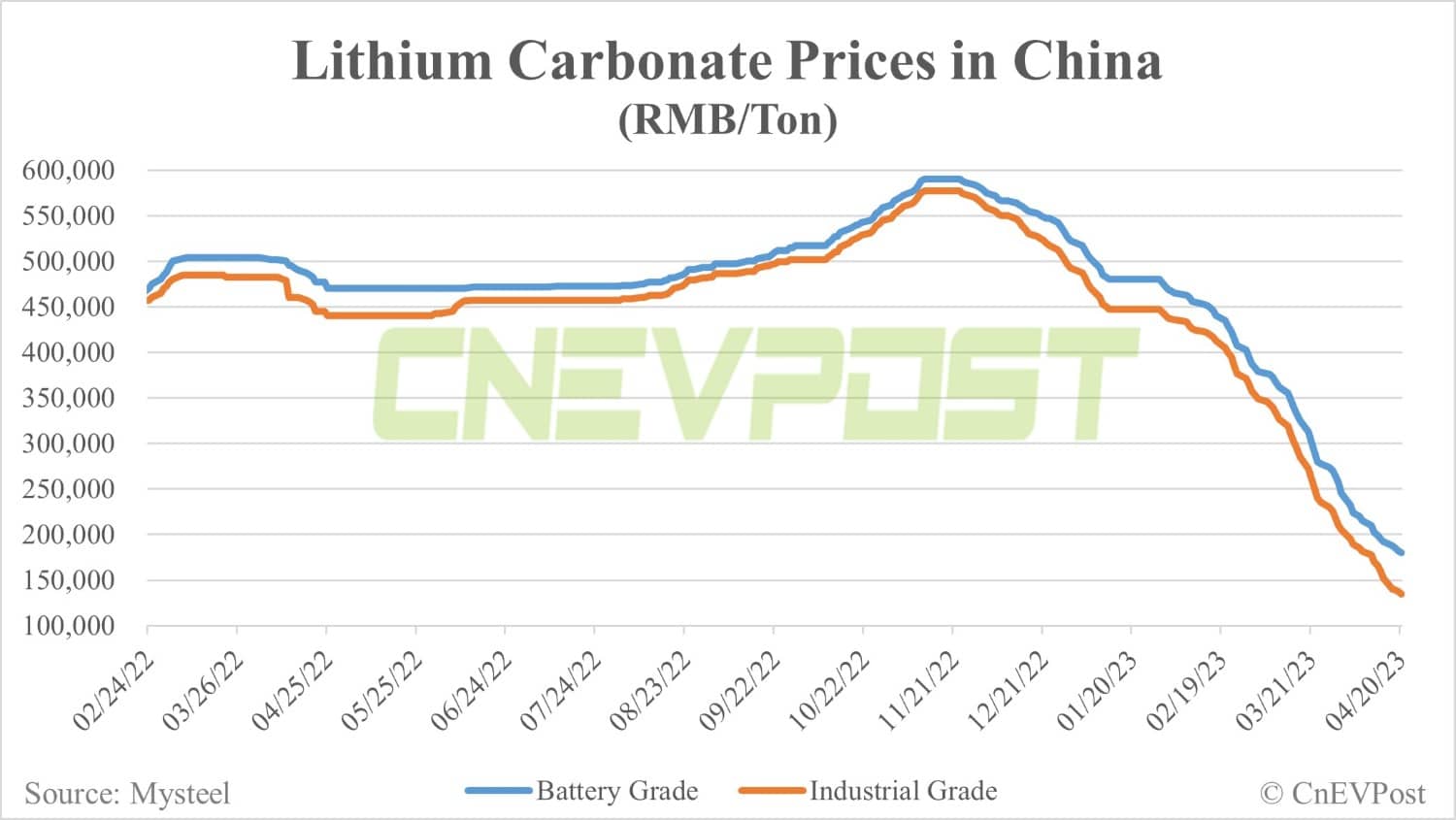Lithium carbonate prices fell more than 50 percent in the first quarter, allowing CATL to see record net profit growth of 557.97 percent in the quarter.
Chinese power battery giant CATL saw strong net profit growth in the first quarter, as raw battery material prices fell.
In the first quarter, CATL saw revenue of RMB 89.04 billion, up 82.91 percent year-on-year but 24.7 percent lower than in the fourth quarter of last year, according to its earnings report released today.
Its net profit attributable to shareholders in the first quarter was RMB 9.82 billion, up 557.97 percent year-on-year but 25.2 percent lower than in the fourth quarter.
CATL's gross margin in the first quarter was 21.27 percent, up from 14.48 percent a year ago but slightly lower than the 22.57 percent in the fourth quarter.
The first quarter is typically a slow quarter for the Chinese auto market, and a rare price war has put an additional dent in electric vehicle (EV) sales.
In the first quarter, retail sales of new energy passenger vehicles in China were 1,313,610 units, up 22.81 percent year-on-year, but down 26.73 percent from the fourth quarter, according to the China Passenger Car Association (CPCA).
As a supplier with about 50 percent share of the Chinese power battery market, CATL's revenue in the first quarter was impacted by weak sales of NEVs.
However, CATL was among the first to profit as lithium carbonate prices fell sharply in the first quarter, with a record high 557.97 percent year-on-year net profit growth.
So far this year, the price of lithium carbonate, a key raw material for batteries, has not seen a single day of gains this year, according to data provider Mysteel.
The average price of battery-grade lithium carbonate fell to RMB 180,000 per ton today, while the average price of industrial-grade lithium carbonate was at RMB 135,000 per ton, down about 70 percent from their highs in November last year.
On March 31, the average price of battery-grade lithium carbonate was RMB 245,000 per ton, down 53 percent from RMB 517,500 per ton at the beginning of the year, according to data monitored by CnEVPost.
When the price of lithium carbonate decreases by RMB 100,000 per ton, ternary lithium batteries and LFP batteries will see marginal cost decreases of RMB 60 to RMB 70/kWh, respectively, said Haitong International Securities analyst Yang Bin's team in a March 30 research note.
In this scenario, battery costs would be RMB 4,200 to RMB 4,900 lower for an all-electric vehicle with a 70-kWh battery capacity, according to the team.




